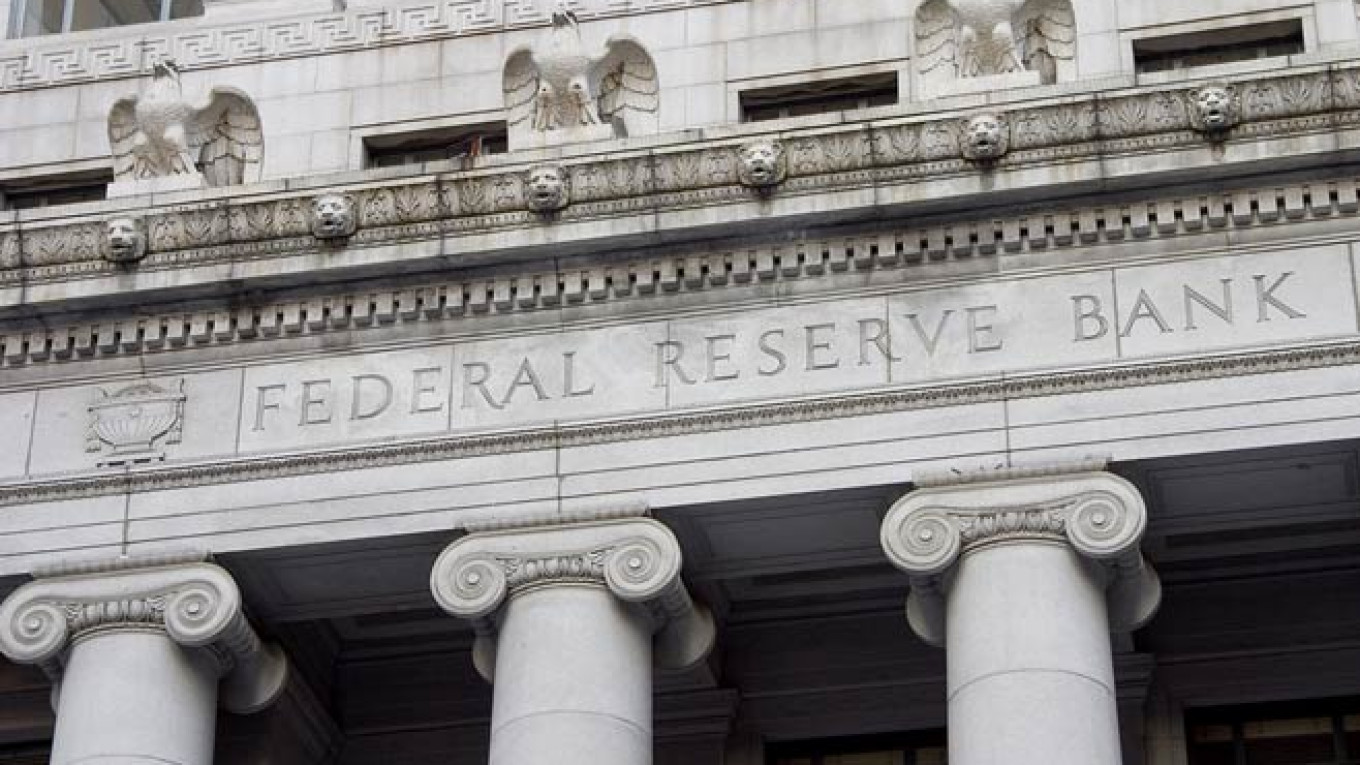 Konstantin Sonin
Konstantin SoninWhy did most economists conclude that events connected with Ukraine would have a negative impact on the Russian economy? Forecasts for Russia's economic growth in 2014 dropped from the "stagnation level" of 1.5 percent growth down to zero growth, and the International Monetary Fund even predicted that the Russian economy would contract this year. One of the main reasons for the pessimism is that credit has become more expensive. The uncertainty resulting from the Russian government's brazen actions and the sanctions imposed by the West have made both foreign and domestic lenders less willing to extend credit.
There are several reasons why this is an inopportune moment for these problems to arise. Even before the recent events in Ukraine, global markets were bracing for an increase in interest rates. The first reason for the expected hike is that the U.S. Federal Reserve and Central Bank are unveiling their program of "quantitative easing." That will produce an artificial increase in the monetary base — in other words, all cash dollars plus reserves. Of course, that should not have a direct impact on interest rates because the Federal Reserve was only trying to prevent a decline in the growth rate of the money supply — that also includes bank deposits in addition to the monetary base.
The Federal Reserve has remained aloof from politics in recent years because the U.S. economy has a stable growth rate that is also high for a wealthy country, while unemployment has finally reached a normal level after four consecutive years of decline. That does not mean the U.S. economy has no problems. It still suffers from high long-term unemployment, high levels of inequality and a sharp drop in social mobility. But the post-crisis period has ended.
The situation in China is the second reason that financial markets are jittery. During the global financial crisis, the Chinese government took the aggressive measure of stimulating its economy by issuing about $3 billion in new loans. That almost fully maintained the country's record growth rate of recent decades, but now Beijing is battling excessive investment in the construction and processing sectors, a bubble in the real estate industry and a huge shadow — unregulated — banking sector. The Chinese government has little experience and few tools to cope with the problem. Even the U.S. government, which can rely on modern legislation and an independent judiciary, has had only mixed success in reining in its shadow financial sector.
Last year, the Bank of China provoked a crisis in its domestic interbank loan market. Of course, it caused a great deal of inconvenience and resulted in significant losses for Chinese banks, but it was intended to cause even greater damage to the country's shadow banking sector. The tactic is like chemotherapy, a treatment that attacks all the cells in the body but primarily kills the more vulnerable cancer cells. However, the Chinese stratagem did not entirely solve the problem, and it is expected that Beijing will soon implement even harsher measures.
The reason we should care is that the Chinese economy is now the second largest in the world, and any decisive action designed to shut down its shadow banking sector will cause the cost of credit to rise globally. The era of cheap money is coming to an end.
Konstantin Sonin, a columnist for Vedomosti, is professor of economics and vice rector at the Higher School of Economics in Moscow.
A Message from The Moscow Times:
Dear readers,
We are facing unprecedented challenges. Russia's Prosecutor General's Office has designated The Moscow Times as an "undesirable" organization, criminalizing our work and putting our staff at risk of prosecution. This follows our earlier unjust labeling as a "foreign agent."
These actions are direct attempts to silence independent journalism in Russia. The authorities claim our work "discredits the decisions of the Russian leadership." We see things differently: we strive to provide accurate, unbiased reporting on Russia.
We, the journalists of The Moscow Times, refuse to be silenced. But to continue our work, we need your help.
Your support, no matter how small, makes a world of difference. If you can, please support us monthly starting from just $2. It's quick to set up, and every contribution makes a significant impact.
By supporting The Moscow Times, you're defending open, independent journalism in the face of repression. Thank you for standing with us.
Remind me later.








